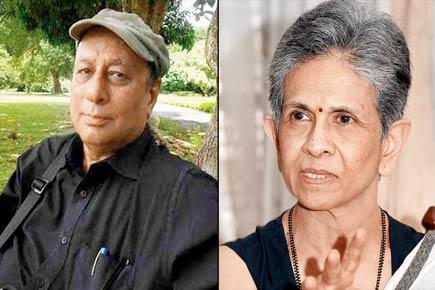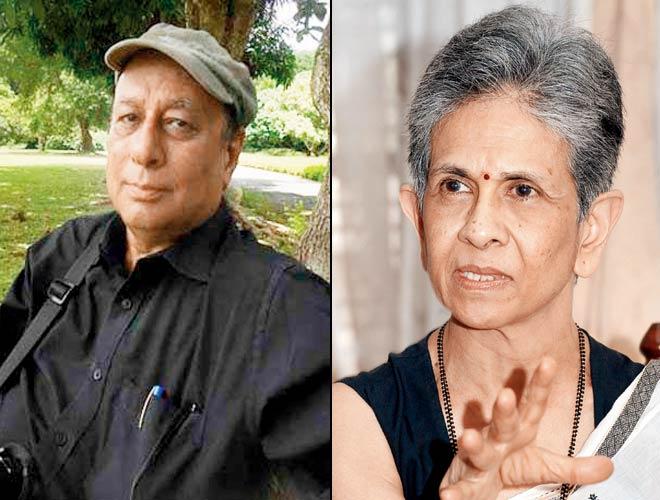The response of some parts of India to Indian writers returning their Sahitya Akademi awards is intriguing, distressing and ultimately amusing, when it backfires on those mocking the writers, as it must

 The response of some parts of India to Indian writers returning their Sahitya Akademi awards is intriguing, distressing and ultimately amusing, when it backfires on those mocking the writers, as it must.
The response of some parts of India to Indian writers returning their Sahitya Akademi awards is intriguing, distressing and ultimately amusing, when it backfires on those mocking the writers, as it must.
After Hindi poet and scholar Uday Prakash returned his award, following the murder of Kannada author and scholar MM Kalburgi, there has been a stream of writers joining him. These writers come from all over India and write in all Indian languages. Some, like novelist and political commentator and contemporary historian Nayantara Sahgal, novelist Shashi Deshpande and poet extraordinaire Keki Daruwalla (with whom I studied in school), write in English and have attracted a bit more attention. The eloquent, erudite Hindi poet Ashok Vajpayi has been extremely forthright on TV and in print on why he has returned his award, regardless of whether his childish critics have heard of him or not, as has Sahgal.
ADVERTISEMENT

By returning their awards in a symbolic show of protest against growing disregard for freedom of speech in the country, writers like Uday Prakash (left) and Shashi Deshpande (right) have made a democratic response to what they see as a crisis in the continuance of their craft. File pic
The intrigue one feels is in the need to question why writers feel threatened. The killing of Kalburgi, known for his views against idol worship and religious superstition, was brutal and seemingly carried out by Hindutva-related organisations, which had threatened him for years. The lesson that his murderers wanted to send out was that to disagree with them meant death. How is a writer to respond to that? Government response, from a law and order perspective, and government condemnation, from a philosophical and political perspective, have both been wanting. So, writers have used a particular form of protest, one that is in keeping with their universe.
Of course the geniuses, who run our media and social media, have responded with the most remarkable bull-headed, offensive and ignorant “whataboutery”: These writers did not object to X or Y or Z. In most cases, the critics are wrong if only because they are too young to know better or they have not done their homework. It is even more tragic, when writers themselves are unable to understand the level of insecurity and dismay that their peers and seniors feel. And there is something terribly petty in the dismissal of a fellow writer’s distress, just because you are a faithful follower of a particular political dispensation. Why beat around the bush? Most of the “anti-writer” comments, taunts and opinions have come from supporters of the BJP and the Sangh Parivar.
In another sense, what is there for me to be amazed about? A member of the Bajrang Dal tweeted soon after Kalburgi’s murder that other writers, who are anti-Hindu, will meet the same fate. The lynching and murder of Mohammed Akhlaq in Dadri, on the rumour that he had eaten beef, got a tepid, extremely late response from the Prime Minister, only issued after a strong statement from the President of India. Various members of the BJP, the Central government and RSS-related Hindutva-based organisations made extremely offensive insensitive statements after Akhlaq’s murder and some openly threatened people, who ate beef, with death.
Writers in India have made a democratic response to what they see as a crisis in the continuance of their craft. They want the literary organization — they belong to, which has awarded them for their contribution to literature, to respond to this crisis to stand for something — to stand up for them. In fact, had they not made a sound, had their acquiesced or condoned what was going on, that is when one would have to call them out. If a writer deals in provoking or encouraging thought and appeals to the human imagination, a writer who is silent in the face of injustice is only a perpetrator of that injustice.
It is no argument to say other things happened in the past and no protest was made. Yes, other things as horrible or similarly frightening did happen in the past and protests of another kind were made then. This protest is about a specific cause and it is becoming a flood. Over 20 writers from across the country have returned their awards and joined their voices against fascist and destructive forces, which have been allowed to run amuck.
What these writers are doing is reminding us that we are a democracy and why we must continue to be one. Disagree with them all you must, but remember that what they are fighting for is your right to disagree.
Ranjona Banerji is a senior journalist. You can follow her on Twitter @ranjona
 Subscribe today by clicking the link and stay updated with the latest news!" Click here!
Subscribe today by clicking the link and stay updated with the latest news!" Click here!







